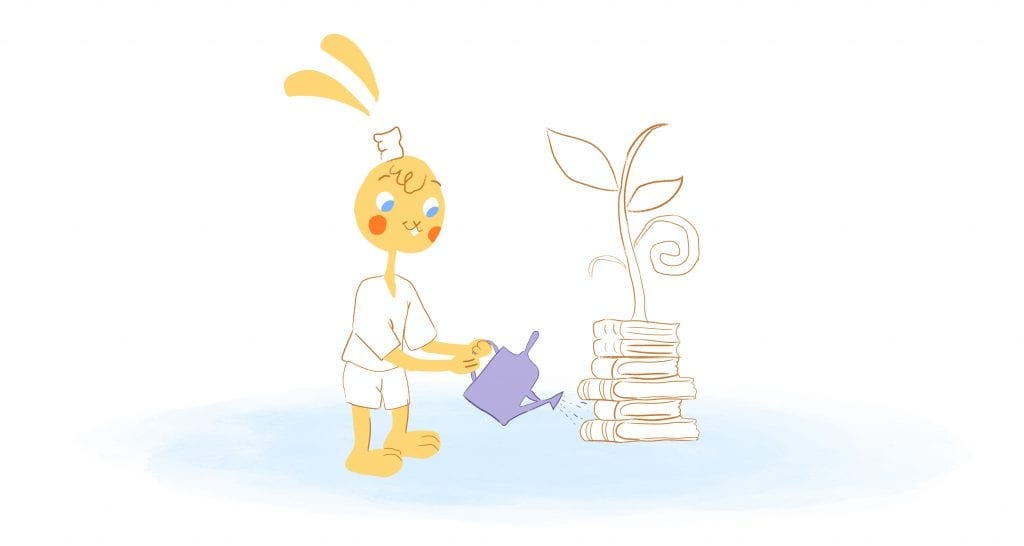

I don’t know about you, but whenever the 4th of July rolls around each year, I can’t help but think about freedom. Thinking about all we have in this country to do with freedom makes sense since this is obviously when we celebrate our country’s independence.
This Year Think About Your Freedom Mindset
This year, however, I really got to thinking that freedom is actually a mindset. Which, in my opinion, isn’t too much of a stretch. After all, mindset is the foundation of everything in your life. Your mindset shapes your values, beliefs, and thoughts.
If you believe that you’re trapped in your life in one particular way — then this fixed mindset will keep you shackled.
But, if you adopted a growth mindset you can change how your mind works. And, most importantly, break free from whatever is holding you back. What’s more, you can easily develop a fixed mindset by taking the following seven steps.
1. Redefine what it actually means to be selfish.
A friend of mine was venting the other day about their cousin. They hadn’t seen each other for a while, you know there was that whole pandemic thing, and so he was stoked that his cousin was in the area. But, whenever he tried to make plans to catch up, his cousin was at the gym or grabbing dinner at his favorite restaurant.
They were able to hang out. And, while I could understand my friend’s frustration, I also got where his cousin was coming from. He was spending his time how he wanted to spend it.
Some would call that “selfish.” But, what if my friend changed how he viewed his cousin’s choices and thought of the decision as self-prioritization instead?
Despite the negative connotations — it’s alright to put yourself first. This is especially true when you need a break, begin to feel overwhelmed, or you just need some alone time. There’s nothing wrong with that.
Remember, time is your most valuable resource. So, schedule self-prioritization is that you can attend to your self-care and work towards your goals.
2. Become limitless.
A limiting belief, according to best-seller author Torie Mathis, “is one that causes life to be less than completely satisfying.” You may not realize it, but limiting beliefs can have a profound effect on your life. For starters, they short-circuit success. Moreover, they can restrict your experiences, growth, and hinder relationships.
The good news is that you can challenge limiting beliefs by first identifying them. The easiest way to do this would be to make a list of the areas where you feel challenged, dissatisfied, or what’s holding you back. Next, put those in order. And, then banish them by;
- Asking yourself “Do I really know that this is true?”
- Trace the origins of the limiting belief to make sure it’s valid.
- State to yourself, “I choose not to believe this anymore. It’s not true.”
- Create a new belief that will better serve you.
- Check-in on yourself daily.
- As you make progress, discover new limiting beliefs that you can eliminate.
- Repeat the following steps regularly.
Another strategy? Mediation.
“When we begin to practice meditation, we come to recognize the sense of limitation that has been imposed on our lives,” writes Sharon Salzberg, author of Faith.
3. Express gratitude.
I like the expression, “Gratitude is freedom.” The reason? Ingratitude chains to what you don’t have.
What’s more, ingratitude leads only to disappointment and dissatisfaction. But, when you focus what you have and are thankful you’re no longer held down by negativity. Additionally, giving thanks has been found to make your happier and healthier.
Best of all? You can easily cultivate gratitude by;
- Writing a thank-you note
- Keeping a gratitude journal
- Mentally thanking someone
- Counting your blessings
- Praying or meditating
4. Recite daily affirmations
Repeating positive statements frequently, aka affirmations, can literally change your mindset.
“Affirmations are powerful because they have an effect on both the conscious and subconscious mind,” notes Genevieve Kohn, an Abundant Entrepreneur Guide for Health and Spiritual Coaches . “When a new affirmation is first spoken, the conscious mind picks it up, whether it is said out loud, written or even spoken internally.” Initially, it may feel awkward making these statement,,” but when an affirmation is said repeatedly every day, the thoughts triggered by the affirmation can begin to absorb into the subconscious.”
“Real change begins in the subconscious, for that’s where we can change beliefs that are no longer serving us,” adds Kohn. “By doing this, we create room to bring in beliefs that support us. Our mindset is then one that can align with the Universe and attract the higher energetic vibration, resources, and ideas to bring in the things we want in our lives.”
5. Tune out unsolicited requests.
I don’t think that any of us like uttering the word “no.” However, if NO is not in your vocabulary, you’re going to deplete your time and energy for others. As a consequence, you’re neglecting your self-care, goals, and priorities.
Again, time is your most valuable resource. So, protect it. If you’re struggling with that, follow the timeless advice from Derek Shivers, “When deciding whether to do something, if you feel anything less than ‘Wow! That would be amazing! Absolutely! Hell yeah!’ — then say ‘no.’”
6. Throw away social norms.
“Trying to be socially acceptable wastes so much time, energy, and money,” says psychospiritual teacher Mateo Sol. “Try to keep only what is essential in your life. If you have to step on a few toes, so be it! If you’re not pissing someone off, you probably aren’t doing anything meaningful with your life!”
“No matter what we do, we’ll always have naysayers,” says Sol. “Be courageous and do what makes you happy, even if that means cutting some people off. Those that do not support you tend to hang around you like dead weight.”
7. Experience freedom.
“Freedom is an experience, a feeling, an emotion or sensation – and the only place that experience is created is in you,” writes coach and mentor Maria Saraphina. “There’s absolutely nothing anyone can do in order to take that experience away from you. Even though at times it feels violently so.”
When you really think about this, it’s absolutely true. We have no control over an aggressive driver, a co-worker who isn’t pulling their weight, or client’s who disrespect your time. You do, however, have complete control over your mindset and thoughts. As such, you “can decide whether or not you’ll let it define you, if it should ruin your day, week, even life or if you’ll let it slide, learn from it,” says Saraphina. “You can decide HOW you choose to experience it.”
Ultimately, it’s up to you if you want to experience freedom. And, it’s possible with “an open- and willingness in looking differently at your experiences.” Try putting yourself in someone else’s shoes. And absorb “the feeling next time you experience freedom.”
“Taste it, sense it, listen to it, feel it, express it,” advises Saraphina. “When you know the feeling, then you can recreate it anywhere, anytime, you can return to it in an instant and really soak yourself in it.” And whenever you stumble, keep yourself accountable through reminders, such as stick-it notes, to bring “you back to the awareness that freedom is a choice, and that that choice is yours.”
Image Credit: josh willinik; pexels; thank you!











John Rampton
John’s goal in life is to make people’s lives much more productive. Upping productivity allows us to spend more time doing the things we enjoy most. John was recently recognized by Entrepreneur Magazine as being one of the top marketers in the World. John is co-founder and CEO of Calendar.